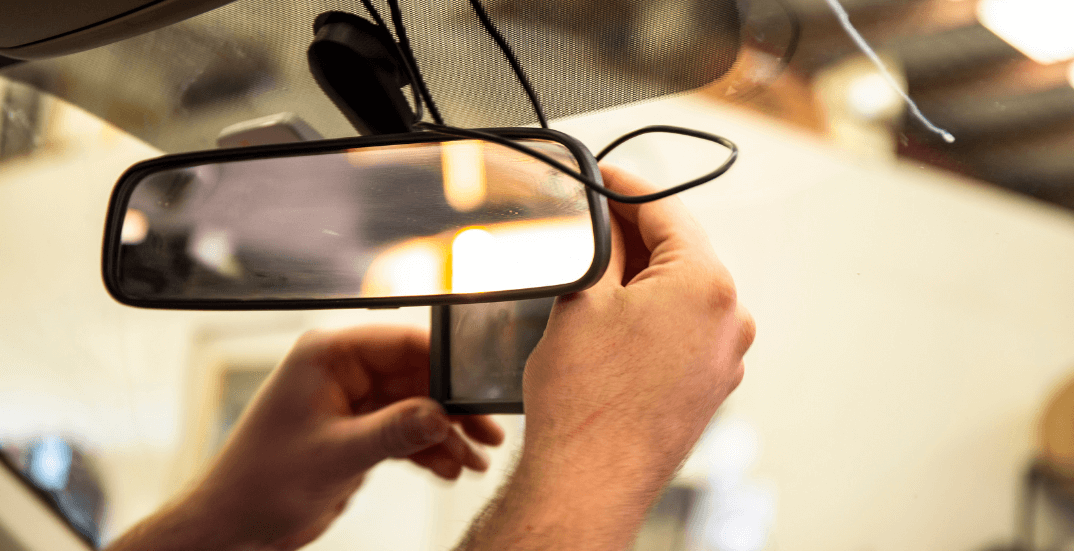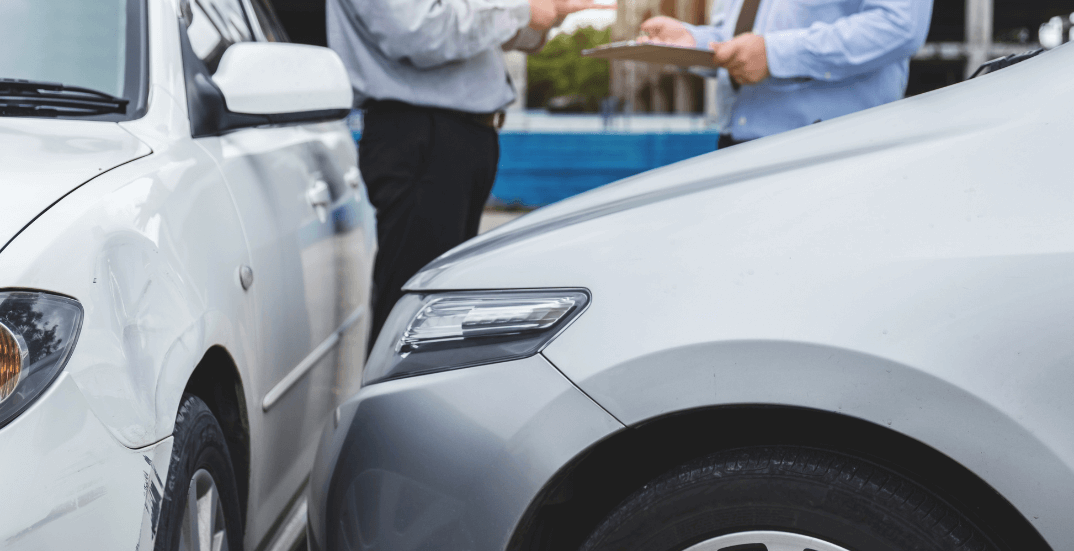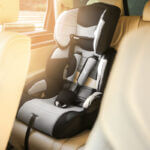
Associate at AKD Lawyers
Practice Areas: Personal Injury, Property Damage, Insurance Bad Faith Claims, Breaches of Contracts, Employer-Employee Disputes

If you’ve ever been involved in a car accident, you probably know the confusion and stress of trying to prove who was really at fault. Is it great if there was an easy way to show exactly what happened without relying on conflicting eyewitness accounts? Well, that’s precisely what dash cams do—they provide clear, undeniable proof by capturing video evidence as you drive.
In this article, we’ll talk about how dash cams can make a huge difference in your car or truck accident claim, what types of dash cams are best, and whether investing in one is indeed worth it. Let’s get started!
Understanding Dash Cams and Their Purpose
Dash cams, or dashboard cameras, are small devices that continuously record video from your vehicle’s windshield as you drive. These videos serve as unbiased eyewitnesses, capturing everything from minor incidents to serious collisions.
It’s a common misconception that backup cameras (rear-view cameras used for reversing) also record footage. Many drivers ask, “Do backup cameras record accidents?” Unfortunately, the answer is typically no. Backup cameras provide live visuals to help you reverse safely but rarely store any recordings.
Dash cams, however, are specifically designed to record and store continuous footage, enabling you to retrieve quickly and present evidence after a car accident. With this important distinction in mind, let’s explore the different types of dash cams and how they can support your accident claims.
“According to the National Safety Council, approximately 4.8 million people were seriously injured in car accidents in the U.S. in 2020 alone. Having clear video evidence from a dash cam can significantly improve your chances of fair compensation.”
Types of Dash Cams Suitable for Cars and Trucks
Choosing the right dash cam is crucial to getting the best evidence for your accident claim. Here are the main types of dash cams you can consider:
Front-Facing Dash Cams
Front-facing dash cams record everything directly ahead of your vehicle. They’re ideal for capturing clear footage of incidents such as other drivers running red lights, abrupt lane changes, or sudden stops. While these cameras are the most common and affordable option, they only provide a front view of accidents.

Dual-Channel Dash Cams
Dual-channel dash cams are a step up, recording video from both the front and rear of your vehicle simultaneously. These cams give you a comprehensive view of your surroundings and are particularly helpful in proving rear-end collisions or incidents involving multiple cars.
360-Degree Dash Cams
360-degree dash cams offer full coverage around your entire vehicle. These sophisticated cameras can record blind spots and are highly beneficial in truck accident cases or incidents involving large vehicles, where blind spots are a significant issue. With a 360-degree dash cam, nothing around your vehicle goes unnoticed.
| Dash Cam Type | Coverage Area | Ideal Use Case |
| Front-Facing Dash Cam | Front view only | Standard driving, front-impact collisions |
| Dual-Channel Dash Cam | Front and rear | Rear-end collisions, multi-vehicle incidents |
| 360-Degree Dash Cam | Complete view around vehicle | Trucks, blind-spot monitoring, complex collisions |
Choosing the appropriate dash cam ensures you have reliable footage to confidently handle accident claims, especially those involving complex situations such as truck accidents.
How Dash Cam Footage Supports Car and Truck Accident Claims
Dash cam footage can profoundly influence the outcome of your car or truck accident claim. Here’s precisely how it helps:
Providing Key Evidence in Accident Claims
Dash cams deliver clear visual evidence of what actually happened. Unlike eyewitness statements, dashcam videos offer undeniable proof. For example, footage clearly showing another driver running a red light can firmly establish fault in your favor, leaving little room for dispute.
Preventing Disputes and False Claims
After a collision, stories can quickly become conflicting and unclear. Dashcam footage eliminates confusion by providing precise evidence of the events leading to the crash. This clarity helps avoid drawn-out legal battles and makes it easier to secure fair compensation.
Identifying Hit-and-Run Drivers
Dash cams also prove invaluable in hit-and-run incidents. Even if the other driver flees, your camera can capture crucial details such as the vehicle’s make, model, color, and sometimes the license plate. This evidence significantly increases the chance that law enforcement can track down the responsible driver.
How Dash Cams Specifically Help in Truck Accident Cases
Truck accidents tend to be more complicated due to the size of the vehicles, blind spots, and the severity of damages. Dash cams are particularly useful in truck accident cases, clearly recording essential details such as reckless driving behavior, improper lane changes, and blind-spot collisions. Clear dash cam footage helps simplify liability issues and improves your claim’s strength.

“In truck accident cases, dash cams are especially valuable. A recent study by the American Trucking Associations found that dash cams helped quickly resolve disputes in over 70% of trucking-related accidents.”
Financial Benefits – Dash Cam Footage in Insurance Claims
Using dashcams offers not only legal benefits but also notable financial advantages:
Protecting Your Insurance Premiums
Dashcam videos demonstrate exactly who caused an accident. When you’re not at fault, providing clear dashcam footage prevents insurers from unfairly raising your premiums due to uncertainty or false claims by other parties.
Combating Insurance Fraud
Insurance fraud, including staged accidents, has increased significantly. Fraudsters often rely on fabricated stories to claim compensation. Dash cam footage can quickly reveal the truth, providing solid proof against scammers and protecting you from becoming a victim of insurance fraud.
Speeding Up the Claims Process
Insurance companies prefer clear evidence. When you submit dashcam videos, insurers can quickly determine fault without lengthy investigations. As a result, claims processing can be significantly faster, easing stress and reducing waiting periods for compensation.
“Insurance companies increasingly favor dash cam footage because it speeds up the claims process, reduces ambiguity, and decreases the likelihood of fraudulent claims.” — Insurance Information Institute (III)
Legal Implications of Dash Cam Use
Before installing a dash cam, it’s vital to understand its legal implications. Many drivers wonder, “Can dash cam footage be used in court?” In Louisiana, the answer is typically yes, provided the footage clearly represents the incident, is relevant, and has not been edited or manipulated in any way.
However, laws regarding privacy and recording differ by state. Always confirm that your dash cam usage complies with local regulations to avoid potential legal complications.
“Dash cam footage is typically admissible in Louisiana courts, as long as it is authentic, clear, and hasn’t been altered. Such evidence can strongly influence judges and juries in deciding fault.” — Louisiana Revised Statutes, Title 13, Evidence
Best Practices for Dash Cam Use
To maximize your dash cam’s effectiveness, consider the following best practices:
Correct Installation
Ensure your dash cam is installed securely and positioned clearly without obstructing your view of the road. Regularly clean the lens and confirm the camera angle captures the necessary areas around your vehicle.
Effective Footage Management
Dash cams commonly use loop recording, meaning new footage overwrites older videos. Regularly transfer important video clips to cloud storage or your computer to safeguard essential evidence and ensure easy retrieval when needed.
Limitations and Considerations of Dash Cam Footage
Despite their benefits, dash cams also have limitations worth acknowledging:
When Dash Cam Footage Isn’t Enough
Dash cam footage may not ultimately establish fault in complex, multi-vehicle accidents. Supplementing dashcam video with police reports, witness statements, or expert testimonies strengthens your claim further.
Dash Cam Footage Legality
Always be cautious regarding privacy laws. To prevent legal complications, make sure your dashcam use is compliant with local regulations, particularly regarding audio recording or sharing footage publicly.
FAQs about Dash Cams and Car Accident Claims
Do backup cameras record accidents?
No, standard backup cameras typically don’t record. They provide live feeds only to help with reversing. Dash cams are specifically designed to record while driving, providing continuous permanent footage of accidents.
Can dash cam footage be used legally in Louisiana courts?
Yes, dashcam footage is generally admissible in Louisiana courts if it is relevant, authentic, and unaltered. This makes dashcam videos highly valuable as legal evidence in car accident cases.
How can a dash cam help in a truck accident case?
Dash cams clearly record details critical in truck accident cases, such as blind spots, reckless driving, or improper lane changes. This visual evidence simplifies proving liability, significantly strengthening your truck accident claim.
Is dash cam footage consistent enough to prove fault?
Not always. Dash cam footage provides strong evidence, but complex cases may require additional supporting evidence, such as police reports, eyewitness accounts, or expert testimony, to fully establish fault.
Can dash cam footage prevent insurance fraud?
Yes, dashcam footage can effectively deter insurance fraud by clearly capturing staged accidents or false claims, protecting you financially and legally against scammers.
Conclusion
Dash cams offer significant advantages in car accident claims, from providing irrefutable video evidence to safeguarding your insurance premiums and expediting claims processes. However, always combine your dashcam evidence with expert legal advice for the best outcome.
Suppose you’ve been involved in a car accident in New Orleans or surrounding areas. In that case, the experienced attorneys at AKD Lawyers can help leverage your dashcam footage to maximize your claim. Contact us today for a free consultation to clearly understand your rights and options.
Categories

In 2003, after being dissatisfied with the quality of legal care for victims of car accidents, Roderick ‘Rico’ Alvendia sought to establish a new firm focused on providing high-quality legal services to aid injured victims and their families. J. Bart Kelly, sharing Rico’s passion for upholding justice, joined the firm later that year, and established a partnership.






